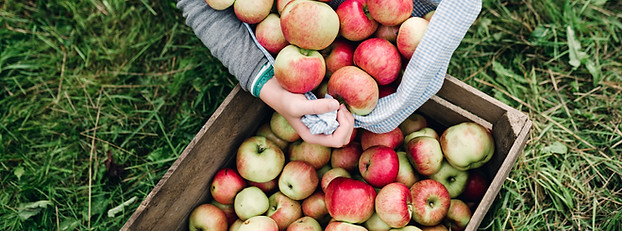
Framing the project.
The Problem
The national conversation about how to build a sustainable food and farming system that feeds everyone can quickly become polarized
and unproductive.
Changing the conversation is a vital part of changing structures, policies, and systems, and oftentimes the conversation must change first.
People with different opinions and experiences are potential allies in making longterm progress.
Instead, we often end up with a public conversation about food and farming in which complicated science and sophisticated growing practices are reduced to oversimplified versions of good versus bad, either/or, all or nothing. Different sides of a disagreement each bring their expert evidence to a debate that is reduced to dueling facts or dueling science. Furthermore, practices and concepts that are technical and hard to explain, such as IPM (Integrated Pest Management), remain invisible, rather than being part of an informed conversation. As a result, practitioners and policy-makers don’t collaborate freely across differences; citizens as voters and consumers are confused about how to sort out competing claims and make intelligent choices; and everyone loses the ability to rally around a common goal of profitable farms that produce healthy, safe, and affordable food for all, using environmentally sound practices.
The Opportunity
There is an opportunity to reframe the food and farm narrative so that it broadens the national public conversation and diversifies the field of players who collaborate. People are paying attention to food like never before. Interest in healthy eating, buying local, organic and ecologically-grown foods is strong and growing. Tens of thousands of organizations are working to improve food and farming systems, and they have the capacity to spread new frames and messages that can slowly shift public understanding.
Our goal is to develop an inclusive narrative that advances public understanding of food and farming practices, and is sufficiently compelling to engage people and organizations who want to use the results of the project in their own work and communities.
A reframed narrative will be hopeful but not fantastical. It would be evidence-based, aligning with the realistic-positive future of U.S. agriculture. It will not serve as greenwashing—public relations cover—for farms and companies that are polluting, depleting resources, or abusing farm labor. Nor will it serve as a platform for an exclusive/purist version of ‘the right and only way to do things.’ It will strive to be a North Star for a sustainable food system that provides healthy, safe, affordable food for all citizens; improves its soils and protects its natural resources; and enables profitable farms, small, medium, and large.

